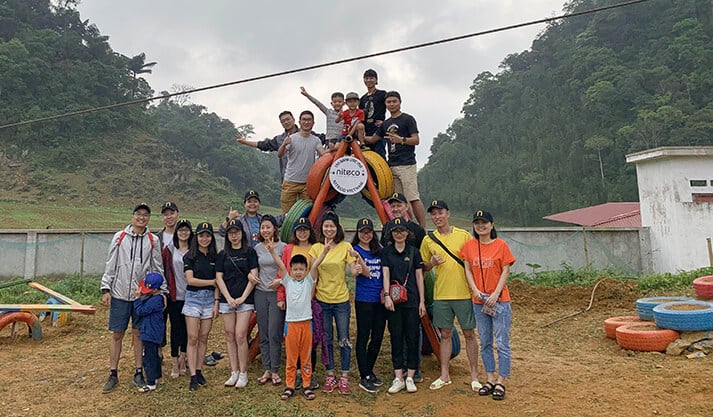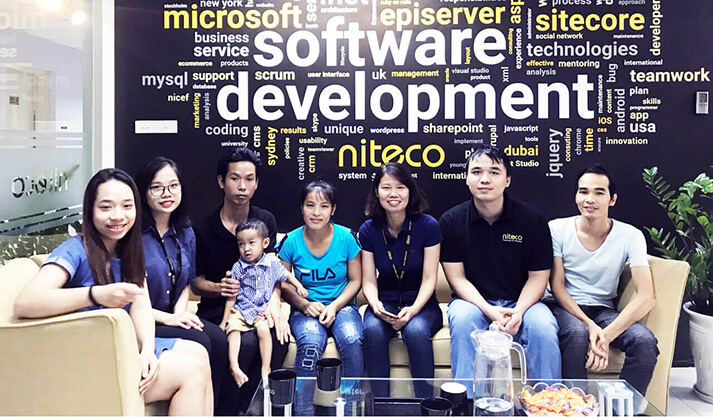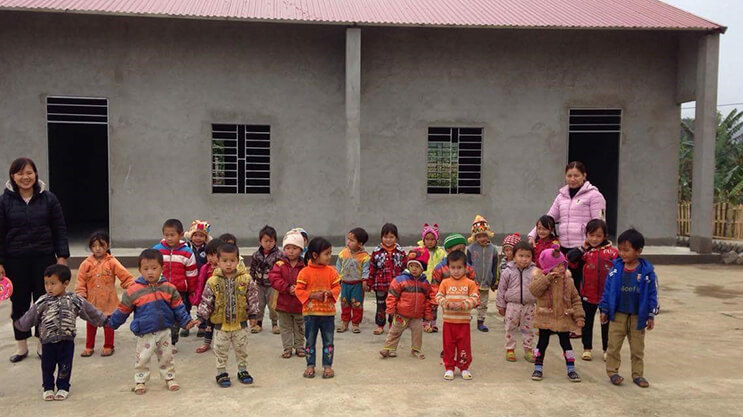Every year, Niteco’s staff members give back to the community, finding ways to improve the lives of Vietnam’s most vulnerable. Recently, a team of five utilized their bilingual skills and became translators for the day, helping Operation Smile surgeons communicate with the families of young patients. Here, our developer Binh Nguyen shares more.
It was not just a normal day at work. When we reached the hospital, it was already crowded, filled with people and their belongings. A range of faces, young and old, were drawn with looks of worry and fatigue. It was Operation Smile day, and we were attending as volunteers, representing Niteco. Operation Smile’s mission is to help people suffering from cleft lip, a common condition that affects patients both physically and emotionally. Our job was to translate, allowing for the patients and their families to communicate with the foreign surgeons.
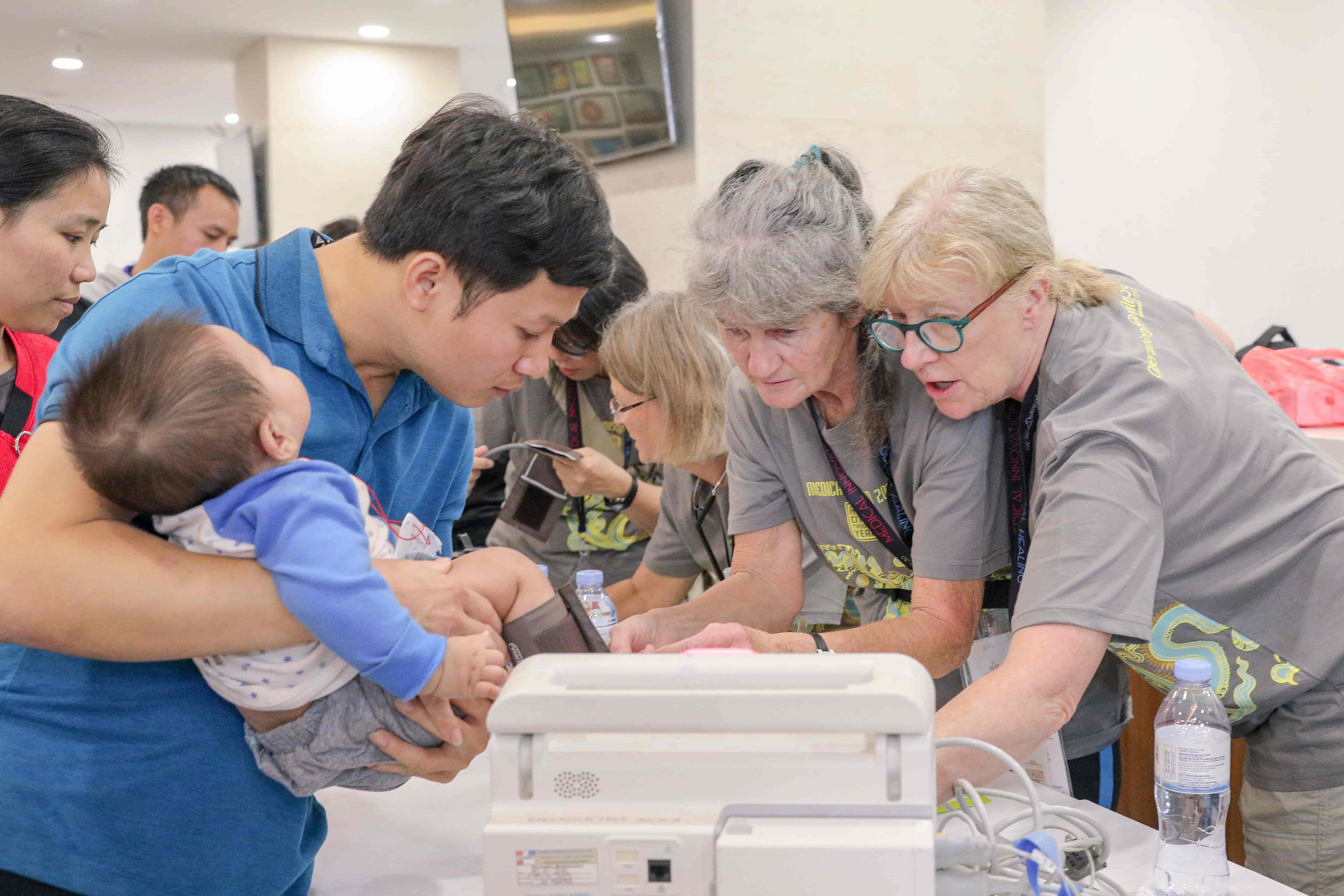
We’d previously received training, so we knew what part we had to play, though it was still a bit overwhelming. We didn’t know that the number of patients to show up would be so high. From babies to teens – the common cleft lip condition did not seem to discriminate. Doctors prioritized the youngest and those who had traveled the farthest. We took their information, weighed them, measured their height, filled their files and directed them to the doctors’ tables.
Patients traveled from all over the country and from the most distant of provinces, many visiting their nation’s capital city for the very first time. They came with high hopes that their child would soon have a beautiful smile, putting an end to their condition. 248 cases were scanned. It was hard, but we made it.
In the afternoon, we started assisting patients with advanced tests like blood tests, x-ray scans and more. I thought the hardest part was over. It wasn’t. Because of the large number of patients, the medical staff and doctors had to work extra hard.
At around 4 pm, the list of people selected for surgery the next day was ready. We started calling people and guiding them to the 21st floor of the hospital, where they would stay and prepare for their operation. Forty people were on the list that day and we tried to reach every last one, sometimes with much difficulty. And it wasn’t just the patients we had to think of, it was their chaperones too. Some elderly family members who could not stay overnight at the hospital due to the hospital’s two people policy would turn to us and ask, “Can you help us to find a place to stay? We are from the countryside and we don’t know the city. We know nobody here.”
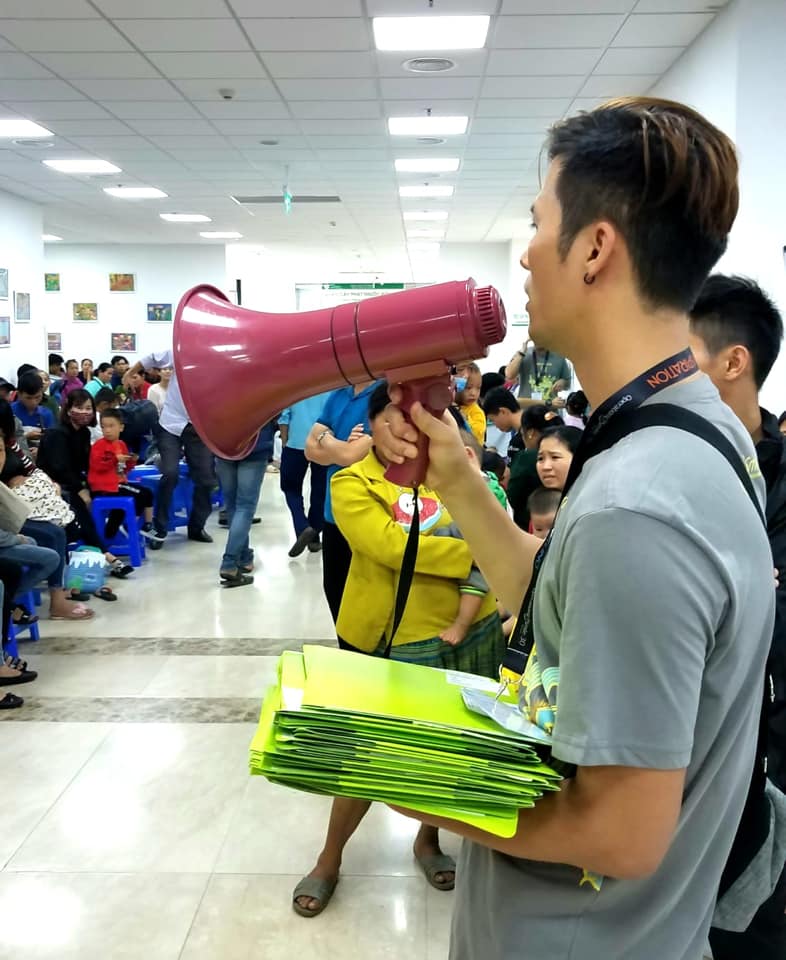
My colleague Hau would reassure them that she would work with the hospital to find a place for them to rest their heads.
By evening, we were exhausted and had lost our voices. It was a tough day, and on reflection, I wish we could have done more. However, we were glad we could play a small part in changing people’s lives. The following day, we came back to our day jobs as software developers, testers, project managers and marketing executives. We remain thankful for the chance Niteco gives us to do good.

